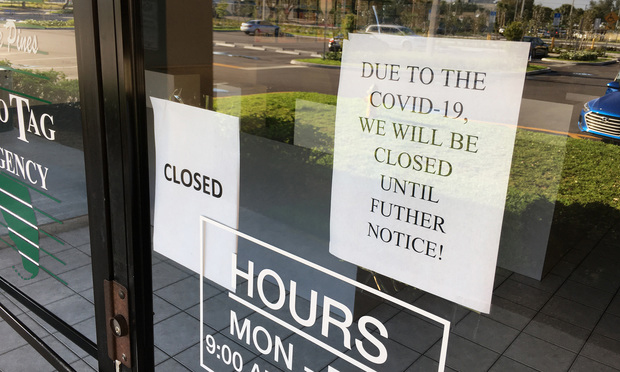N.Y. policyholder wins in COVID business interruption case
A federal judge denied an insurer’s request for dismissal, allowing the insured's case to move forward in a first for the state.

New York Federal Judge Analisa Nadine Torres, with the U.S. District Court for the Southern District of New York, has denied an insurer’s dismissal of a COVID-19 coverage case, issuing a favorable decision for an insured. In what stands as the first win for policyholders in a New York COVID-19 insurance coverage case, the ruling found that the contamination exclusion was ambiguous and that the Court lacked a sufficiently developed factual record to rule on whether the Loss of Use exclusion encompassed the insured’s losses.
Thor Equities, LLC, a commercial landlord, rents properties across the country to hundreds of tenants for use in various businesses, including office space, retail stores, restaurants, and bars. On March 13, 2020, Thor purchased an insurance policy from Factory Mutual (FM) Insurance Company. The policy provided up to $750 million in coverage for property damage and business interruption losses. Days later, state governments across the country adopted stay-at-home orders in response to the COVID-19 pandemic. As a result, many of Thor’s tenants were forced to close shop and unable to generate revenue, so they requested abatements or other accommodations. Thor alleged that it suffered significant business interruption as a result of the pandemic.
Thor also alleges that confirmed cases of COVID-19 at multiple properties required the company to take action to secure and preserve those locations. At the commencement of this action, Thor estimated that it had already lost more than $20 million in rental income alone.
The policy provided a maximum per-occurrence limit of liability of $750 million, including various sublimits and time limits. An occurrence, as defined by the policy, was “the sum total of all loss or damage of the type insured, including any insured [time element] loss, arising out of or caused by one discrete event of physical loss or damage.”
Additionally, the policy contained various “additional” coverages under the policy’s property damage section, including business interruption coverage, a communicable disease response provision, a contamination exclusion, and a loss of market or loss of use exclusion. The business interruption provisions covered, in part, losses from the interruption of business, loss of rental income, and loss caused by restriction of access due to an order by civil authority.
‘Why the exclusion does not apply’
Thor states that it gave the insurer prompt notice of its claim for coronavirus losses. In an April 6 phone call, Thor’s counsel indicated to FM’s claims manager that the claim would greatly exceed the policy’s $1 million sublimit for the communicable disease coverage. FM sent a “formal acknowledgment” letter that seemed to focus on the communicable disease coverage, which Thor interpreted as an indication that FM would breach its obligation to cover the losses.
Thor sued, seeking a judgment declaring that FM must cover Thor’s COVID-19 related losses to the policy’s full extent.
In addressing the applicability of the contamination exclusion, the Court determined that the exclusion was “susceptible to more than one interpretation and potentially compatible with either party’s interpretation.” The court found Thor’s position that the exclusion applies only to contamination “costs” and does not unambiguously foreclose recovery on Thor’s losses due to contamination reasonable and noted that the policy distinguished “cost” from “loss” elsewhere but failed to distinguish in the contamination exclusion.
In the loss of use exclusion, the Court determined that it could not decide on the parties motions at the time because there was no developed factual record. The Court found that, on its face, the exclusion did not swallow available coverage provided by the policy because the policy states that the exclusion applies “unless otherwise stated” in the policy. Because of this, the Court concluded that “to the extent that other provisions of the policy encompass ‘loss of use,’ the exclusion is inapplicable.”
In a statement, one of Thor’s attorneys, Robin Cohen, chair of Cohen Ziffer Frenchman & McKenna, said, “Since the inception of the pandemic, the insurance industry has attempted to systematically short circuit the rights of policyholders to prove coverage for COVID-related business losses through facts and science. This decision blunts that effort, as it allows the coverage case to continue and gives the policyholder the opportunity to demonstrate why the exclusion does not apply.”
Related:

